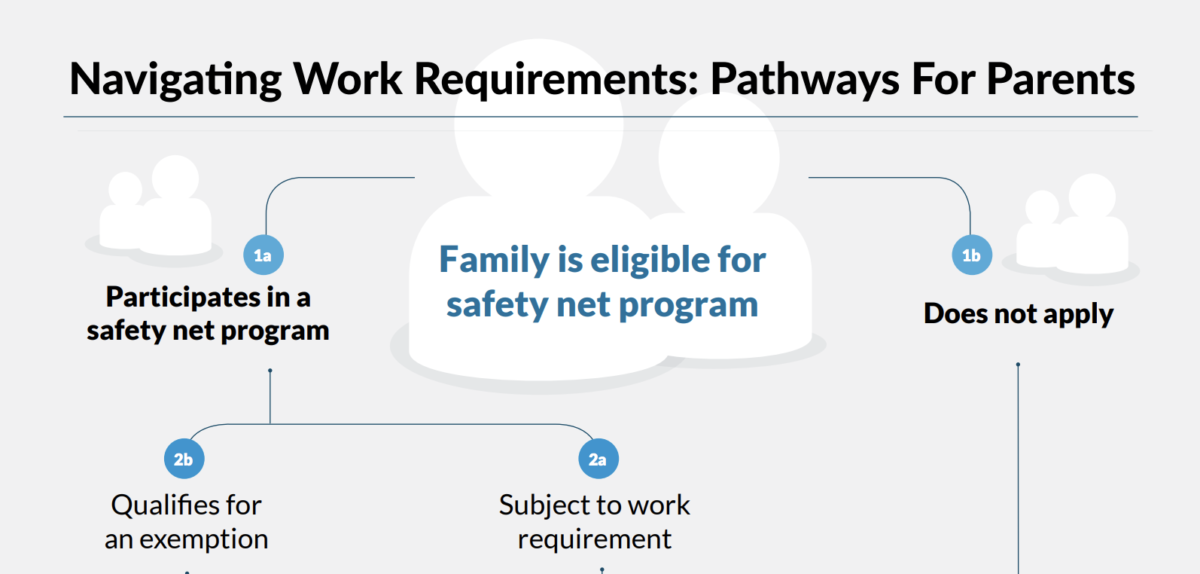New from the Urban Institute: Challenges Face Parents in Navigating Work Requirements

Programs like Medicaid and SNAP provide important supports for young children and their families.
- Medicaid is a vital source of health insurance for families of young children, covering most young children (from birth to age 5) with incomes near the federal poverty level. Just as importantly, Medicaid covers millions of parents; and research consistently shows that children are more likely to have health insurance if their parents also have coverage.
- SNAP helps eliminate food insecurity and improves nutrition for children and families. Research shows that children do better when the whole family has enough to eat—and food insecurity at any age is associated with stress, obesity and other negative outcomes. Without consistent access to enough healthy food, some low-income parents must sometimes skip their own meals or make tough decisions between buying food and paying for other necessities like housing and healthcare costs.
Despite the clear benefits of these programs, some policymakers want to require adults—including parents—to navigate tough new requirements in order to get and keep their health insurance and food and nutrition benefits. In order to gain and maintain eligibility for SNAP and Medicaid, adults would be required to participate in approved work activities and submit significant paperwork.
The Urban Institute, a renowned research organization, has released a report and an accompanying infographic that demonstrates how navigating work requirements is not as straightforward as getting a job. Parents must first understand what the requirements entail and then document their compliance – or learn how to document that they qualify for an exemption. Once they submit their documentation, they face potential administrative errors when their cases are processed. In communities where there are few jobs or unstable work schedules, parents may not be able to comply. Some parents may need additional skills or education to meet the requirements, or they may need help with child care or transportation. Parents who don’t work enough–or don’t have access to the necessary work supports–may be at risk of losing access to critical programs like Medicaid and SNAP.
Expanding work requirements is a heavy-handed solution in search of a problem. Already, nearly 8 in 10 adults on Medicaid live in working families and those who are not working are unable to do so because they have a disability, a chronic illness, are caring for a family member or are in school. Similarly, 87 percent of adults with children that receive SNAP benefits were working in the year they received SNAP (source: Center on Budget and Policy Priorities). Oftentimes workers turn to SNAP precisely because they are between jobs.
1,000 Days is monitoring efforts to expand work requirements because we have concerns about how they will affect the health and nutrition of women and children in the first 1,000 days. When families lose access to critical benefits like Medicaid and SNAP, the health and well-being of women and young children will suffer as a result.
